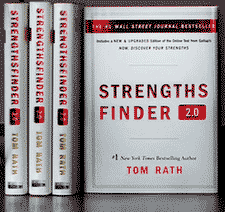[Part 2 of the Counselor Training Blog Series where you will find valuable and dynamic information to build a stronger recruitment team.]
In Part 1 of this series we outlined a four-step communication model that is simple, effective and proven to increase recruitment success for those who adopt it.
 Today we will take a deeper dive into the first of those steps: PROBING.
Today we will take a deeper dive into the first of those steps: PROBING.
“Probing” simply means asking a lot of questions.
You might be thinking, “Well, I already do that.”
The truth is, the vast majority of counselors we work with don’t cover a sufficient number of topics with a prospective student.
And they don’t dig deeply enough to understand what will influence the student’s college selection decision.
When you talk to a student, think of each topic of conversation as a bucket and your job is to fill that bucket by asking enough questions to completely exhaust the subject. Your goal is to understand how much influence that topic has on the student’s college selection decision.
For example, you might ask, “How interested are you in off-campus recreational activities?” The student might say they are VERY interested in that.
What you’ve done is open a bucket and you need to ask as many questions as you can to understand what they like and want in that particular area.
You also need to find out how important it will be in their selection of a college. Even though they may be “very interested” in it they may also tell you – IF YOU ASK – that it’s not going to factor in their college selection decision.
Some buckets of conversation are opened and closed quickly.
For example, if you ask about the importance of distance-from-home in selecting a college, and they say they are willing to go anywhere, you’ve just determined that distance-from-home is neither going to be a deal-breaker nor a strong perceived value of your institution. In that case, you can close the “distance-from-home” bucket and move on.
The most accomplished counselors open and fill MANY buckets of conversation. They can question a student for an hour and do nothing but open and fill buckets. When the probing part of the conversation is complete, the counselor has a thorough understanding of the human being they’re talking to. More importantly, the student feels understood and valued.
There is an art to probing. But it’s also an acquired skill that can be learned and perfected. We have helped counselors learn to probe in a manner that is so effortless that at the end of the exchange the student describes the encounter as a “great conversation.” In the process, the student has handed the recruiter every tool he or she needs to present the value of the college in perfect alignment to what the student will perceive as being valuable.
When you become experienced and polished at probing, you’ll uncover key factors that will motivate a student to select your college over all others.
Next in the Counselor Training Blog Series we will explain how you can take what you learned by probing and present your college’s specific values and benefits to prospective students for maximum effect.
Continue the Conversation on Twitter @LongmireCo. Click here for more information on Longmire and Company’s Interactive Counselor Training Program.
[This is Part 2 in our Series: Counselor Training for Recruitment Success. Subscribe to Versions of Conversion today so you don’t miss any of this highly valuable information.]
 Rick Montgomery is as an Enrollment Strategist at Longmire and Company. With over 20 years in higher education marketing, he brings an innovative approach to helping colleges and universities meet their enrollment goals.
Rick Montgomery is as an Enrollment Strategist at Longmire and Company. With over 20 years in higher education marketing, he brings an innovative approach to helping colleges and universities meet their enrollment goals.

 I highly recommend two books from Gallup Press that define this philosophy and enable you to take immediate action. The books,
I highly recommend two books from Gallup Press that define this philosophy and enable you to take immediate action. The books,  of the team because each book contains a unique code that provides access to an online assessment that isolates and reports their top five strengths.
of the team because each book contains a unique code that provides access to an online assessment that isolates and reports their top five strengths.
